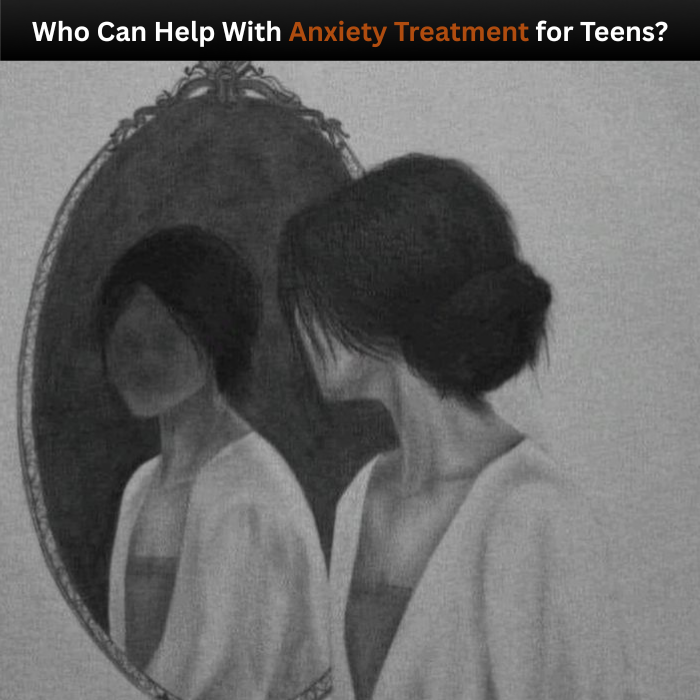Anxiety can feel overwhelming for teenagers. From academic pressure to social expectations, it’s easy for young people to feel trapped in cycles of stress and worry. For parents, the challenge often lies in figuring out where to turn for help. The good news is that several professionals, resources, and approaches specialize in anxiety treatment for teens. Understanding who can support your child is the first step toward helping them feel better, regain confidence, and build resilience.
Below, we’ll explore the key people and resources who can play a role in effective anxiety treatment, along with insights on how each option works.
Licensed Therapists and Counselors
Therapists and counselors are often the first stop for families seeking anxiety treatment. These professionals use evidence-based approaches such as cognitive-behavioral therapy (CBT) to help teens recognize negative thought patterns and develop healthier coping strategies.
What makes therapy effective for teens?
- A safe space to talk openly without judgment.
- Personalized strategies that fit the teen’s lifestyle.
- Techniques like relaxation training, mindfulness, and exposure therapy.
Working with a licensed therapist allows teens to build confidence while learning long-term tools to manage anxiety.
Child and Adolescent Psychiatrists
While therapists focus on talk-based methods, psychiatrists add another layer of expertise to anxiety treatment. These medical doctors specialize in mental health and can diagnose anxiety disorders, prescribe medication if necessary, and monitor progress.
For some teens, therapy alone is enough. For others, a combination of therapy and medication carefully monitored by a psychiatrist can provide the balance needed to manage symptoms more effectively. Psychiatrists also coordinate with other providers, ensuring a holistic approach to care.
School Counselors and Psychologists
Schools play a critical role in supporting anxiety treatment. Many teens spend most of their day at school, which means educators and counselors often notice signs of anxiety early.
School-based mental health professionals can provide support through:
- Academic accommodations, like extended test times.
- Short-term counseling sessions.
- Referrals to external specialists for ongoing treatment.
When parents collaborate with school counselors, they create a support system that extends beyond the therapy room.
Pediatricians and Family Doctors
Pediatricians are often the first professionals parents consult when their teen shows signs of anxiety.
While they may not provide therapy themselves, they can:
- Rule out medical conditions that mimic anxiety symptoms.
- Offer initial guidance on treatment options.
- Refer families to trusted mental health providers.
Because pediatricians have long-standing relationships with families, their input is especially valuable when choosing the right path for anxiety treatment.
Peer Support Groups and Youth Programs
Sometimes, teens need to know they’re not alone. Peer support groups can provide encouragement and reduce the stigma around mental health challenges. These groups are often led by trained facilitators and give teens the opportunity to share experiences and learn coping strategies from others their age.
Benefits of peer support include:
- Building a sense of community and connection.
- Hearing relatable stories from peers.
- Practicing social skills in a supportive environment.
While not a replacement for professional care, peer groups can be a meaningful part of a broader anxiety treatment plan.
Family Therapists
Anxiety doesn’t just affect the teen it impacts the entire household. Family therapists work with both parents and children to improve communication, reduce conflict, and strengthen relationships. This approach ensures that teens receive consistent support at home.
Family therapy can also help parents recognize unintentional patterns, such as overprotection or high expectations, that may contribute to their teen’s stress. By adjusting these dynamics, families create a more supportive environment for healing.
Holistic and Complementary Practitioners
Some families explore holistic approaches alongside traditional anxiety treatment. Practices such as yoga, meditation, nutrition counseling, and acupuncture can complement therapy and medication. These methods focus on reducing stress and improving overall well-being.
Though not always considered primary treatments, holistic options can make a difference by promoting relaxation and resilience. They are best used in conjunction with professional medical or psychological care.
Community Mental Health Centers
For families facing financial or accessibility barriers, community mental health centers provide affordable anxiety treatment. These centers often employ licensed professionals, offer group sessions, and connect families with additional resources.
Services at community centers may include:
- Sliding scale payment options.
- Access to both therapy and psychiatric support.
- Educational workshops for parents and teens.
Exploring these resources ensures that no teen has to go without care due to cost.
Online Therapy Platforms
Digital platforms have expanded access to anxiety treatment, especially for teens who feel more comfortable communicating virtually. Online therapy can include video sessions, chat-based support, and self-guided modules.
While not suitable for every case, online therapy can benefit teens who struggle with transportation, scheduling, or the stigma of attending in-person sessions. It’s important, however, to choose reputable platforms with licensed professionals.
Parents as Everyday Supporters
Parents play a central role in their teen’s anxiety treatment journey. While professional help is essential, everyday support from family makes the biggest difference.
Parents can:
- Model healthy stress management habits.
- Encourage open, nonjudgmental communication.
- Celebrate small progress milestones.
When teens know their parents are supportive and involved, it reinforces the effectiveness of professional treatment.
How to Choose the Right Path for Anxiety Treatment
Deciding who should help with anxiety treatment depends on the teen’s unique needs. Some may benefit most from weekly therapy, while others require medical supervision or school accommodations. In many cases, the best outcomes come from combining resources therapists, psychiatrists, school staff, and parents working together.
A thoughtful approach often involves:
- Assessing the severity of anxiety symptoms.
- Consulting professionals for evaluations.
- Exploring both individual and group supports.
- Remaining flexible and adjusting treatment as needed.
Final Thoughts
Anxiety treatment for teens is not one-size-fits-all. The most effective path is usually a combination of professional care, peer and family support, and lifestyle changes that promote well-being. By understanding the different professionals and resources available, parents can feel empowered to take meaningful steps toward helping their teen thrive.
From my own experience supporting families, I’ve seen how vital local care can be. If you’re searching for anxiety treatment in Philadelphia, there are compassionate professionals in the city ready to help your teen find calm, confidence, and balance.
Explore more helpful articles throughout our website-: www.kinkedpress.com



